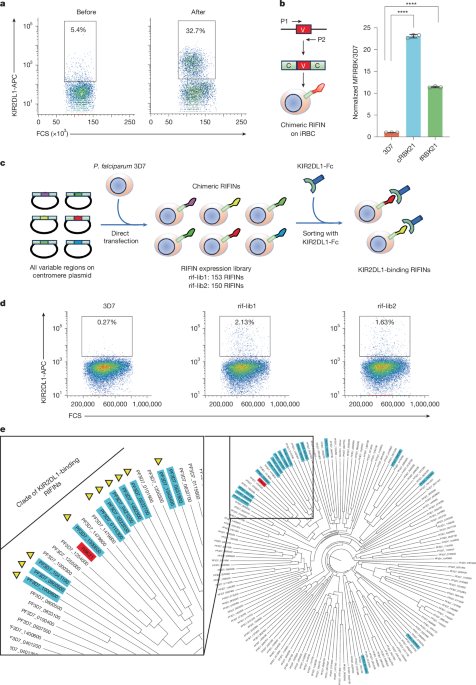
"Understanding the interactions between RIFIN proteins and immune receptors is crucial for developing strategies to combat malaria, particularly in regions heavily affected by the disease."
"The role of KIRs on NK cells demonstrates the delicate balance between inhibitory and activating signals that shape the immune response to malaria and other infections."
The article discusses the role of RIFINs in Plasmodium falciparum malaria, explaining how these proteins, which are expressed on infected red blood cells, interact with immune receptors like LILRB1 and LAIR1. This interaction leads to suppression of natural killer (NK) cell function, impacting host immunity and parasite clearance. The presence of specific antibodies that target RIFINs may enhance protection against malaria in endemic regions. Additionally, the importance of KIRs in NK cell response to infections highlights the complexity of immune signaling in combating malaria.
Read at Nature
Unable to calculate read time
Collection
[
|
...
]